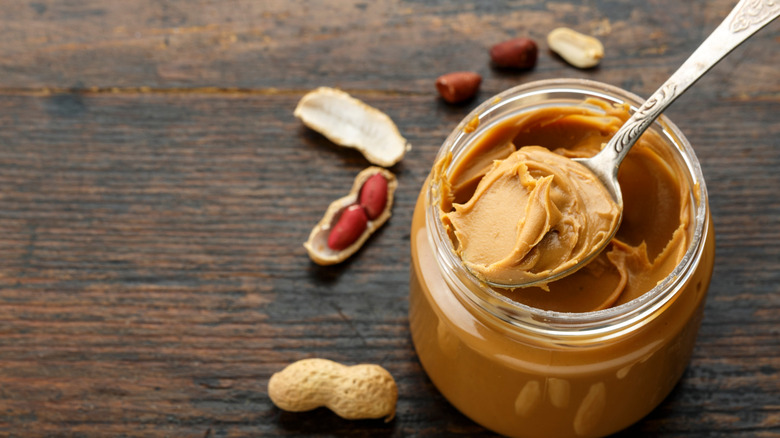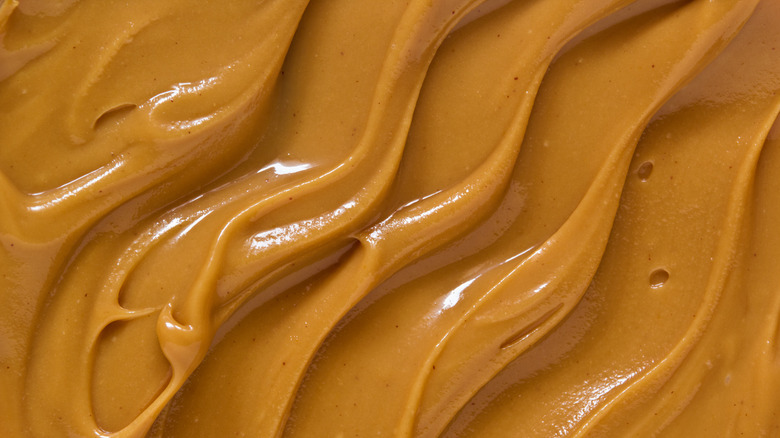
Peanut butter is a beloved spread and essential item in numerous households, and it’s easy to see why. It’s rich, creamy, and loaded with protein along with vital vitamins and minerals (via Healthline). Additionally, it boasts a relatively long shelf life. The high-fat content in peanut butter means there’s minimal moisture, reducing the likelihood of bacterial growth. Most peanut butter brands also incorporate stabilizers such as hydrogenated vegetable oils and preservatives, which further prolong shelf life and inhibit bacterial growth.
Consequently, commercial peanut butter brands can remain good for an extended period. For example, an unopened jar of commercial peanut butter can last between six to 24 months. However, once opened, its shelf life decreases to two or three months. On the other hand, natural peanut butter brands often have shorter shelf lives due to the absence of stabilizers or preservatives. While sealed, natural peanut butter can last several months, but once opened, it typically lasts only about one month. Nonetheless, refrigeration can slightly extend the shelf life of any peanut butter type and help maintain its freshness.
How to tell if peanut butter has gone bad

If you’re uncertain whether your jar of peanut butter has spoiled, you can check the expiration date or perform a quick taste test (via Live Science). Expired peanut butter typically tastes dry and rancid and emits a foul odor. It may also appear darker. This occurs because peanut butter spoils and deteriorates the longer it’s exposed to oxygen, a process known as rancidification. Thankfully, this process takes time, generally not occurring until 9 to 12 months after opening a new jar.
That said, consuming rancid and expired peanut butter isn’t particularly hazardous; it’s just unpleasant. “It won’t hurt you if you eat it – it will just taste bad,” Maribeth Cousin, a professor of food science at Purdue University in Indiana, told Live Science. “Some people actually eat rancid food without knowing it, depending upon their individual taste buds.”




